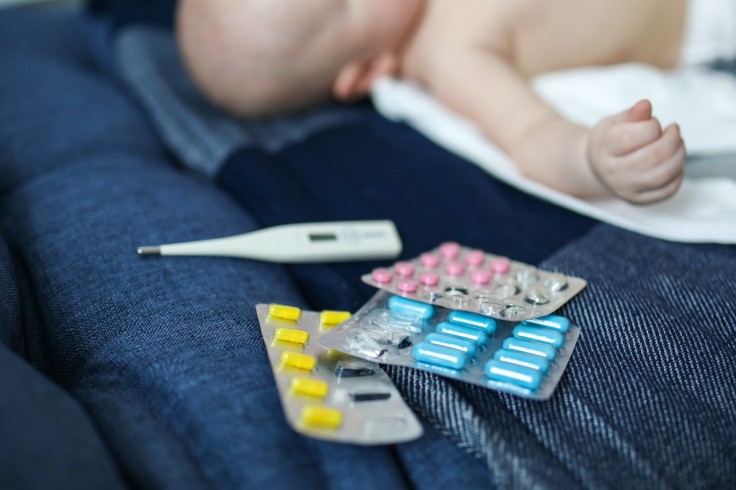
With the winter season comes viruses circulating at school and in daycares, risking kids to daily exposure. Thus, when they come home with warm foreheads, parents would take that as the first sign that they caught a bug. And they can act on impulse, out of worry and panic, and instantly give their children medicines.
Experts warn that parents may be "unnecessarily" giving medications that can negatively affect their kids.
A new survey published in Science Daily and conducted by the University of Michigan doctors showed that one out of three American parents is quick to grab fever-reducing medicines to give to their children who feel warm, even when unnecessary.
"Some parents may immediately rush to give their kids medicine but it's often better to let the fever run its course. Lowering a child's temperature doesn't typically help cure their illness any faster. In fact, a low-grade fever helps fight off the infection. There's also the risk of giving too much medication when it's not needed, which can have side effects," Mott Poll co-director and pediatrician Susan Woolford, M.D., explained.
Medication isn't always the answer
Woolford further stated that parents often worry too much and do all they can to minimize the temperature. Yet, they need to be aware that, in general, the primary way to treat fever is to make the kids comfortable.
According to a Mott Poll report, 89 percent of parents know that a low-grade fever is the body's natural response to immunity, fighting bacteria and viruses. Sixty-seven percent opt to use other methods, such as cool washcloths, making medication the last resort.
Sixty-five percent rate themselves as "very confident" in terms of their knowledge of when their children need fever-reducing medications. However, the survey found that parents are reporting different temperature thresholds as a basis for when to allow medications.
Thirty-three percent of parents give fever-reducing medication to children with spiked temperatures below 100.4 Fahrenheit. This is not recommended, doctors emphasized.
Risks of unnecessary medications
Moreover, the survey revealed that 25 percent of parents would let their kids take medicine to prevent a fever from returning, even if it does not improve them.
Woolford encouraged parents to consider monitoring the children's feelings before giving them another go on the meds as there is a risk of overdose, especially in young children.
Thus, she suggested alternative interventions to make the kids feel comfortable and rested, like keeping them hydrated and ensuring the room is cool.
Moreover, there is also the risk that the medications can mask other symptoms for other and more severe diseases. Woolford explained that the medicines used to reduce temperatures also treat pain. However, most of the time, the pain can lead to the source of infection, and when this is being masked due to fever-reducing medicines, diagnosis and treatments can be delayed, CTV News reported.
She encouraged parents to be aware of the signs when children are to be taken to the doctor or the emergency room.
Doctors should be contacted immediately for babies four to 12 months old if their fever comes with decreased activity and urination but increased fussiness. However, she stressed that if a newborn under three months old catches a fever, parents should take the baby to a health professional as soon as possible.
Parents must take their children for a check-up if they are under two years old and experiencing a 104 degrees Fahrenheit or 40 degrees Celsius fever for more than 24 hours. The same is to be done for children over two years old with fever for three consecutive days or more.
The survey gathered responses from 1,376 parents with kids ages 12 and under. They were polled between August and September of last year.
Related Article: Is Bathing Advisable When You Have Fever?